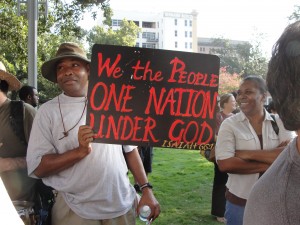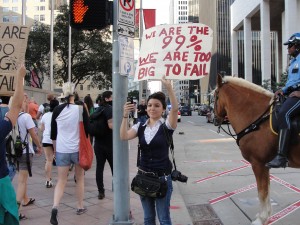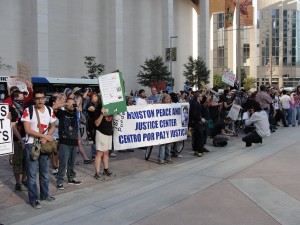What can we learn from Karl Marx regarding the swelling second wave of the global economic crisis with its epicenter in Europe?
Writing in the first volume of Capital nearly 150 years ago, Marx added to the end of the first chapter a curious essay entitled “The Fetishism of Commodities and the Secret Thereof.†Coming after a rigorous argument that places the commodity at the center of his analysis of capitalism, section 4 reads like a disclaimer of all that precedes it:
Man’s reflections on the forms of social life, and consequently, also, his scientific analysis of those forms, take a course directly opposite to that of their actual historical development. He begins, post festum, with the results of the process of development ready to hand before him. The characters that stamp products as commodities, and whose establishment is a necessary preliminary to the circulation of commodities, have already acquired the stability of natural, self-understood forms of social life, before man seeks to decipher, not their historical character, for in his eyes they are immutable, but their meaning. Consequently it was the analysis of the prices of commodities that alone led to the determination of the magnitude of value, and it was the common expression of all commodities in money that alone led to the establishment of their characters as values. It is, however, just this ultimate money form of the world of commodities that actually conceals, instead of disclosing, the social character of private labour, and the social relations between the individual producers. When I state that coats or boots stand in a relation to linen, because it is the universal incarnation of abstract human labour, the absurdity of the statement is self-evident.
Nevertheless, when the producers of coats and boots compare those articles with linen, or, what is the same thing, with gold or silver, as the universal equivalent, they express the relation between their own private labour and the collective labour of society in the same absurd form.
The categories of bourgeois economy consist of such like forms. They are forms of thought expressing with social validity the conditions and relations of a definite, historically determined mode of production, viz., the production of commodities. The whole mystery of commodities, all the magic and necromancy that surrounds the products of labour as long as they take the form of commodities, vanishes therefore, so soon as we come to other forms of production.
The “secret†in this section is not only the secret to understanding commodities, even capitalism, but indeed the key to appreciating the Marxian method.
Marxism stands apart from “bourgeois economy†precisely because, through a dedicated study of history and revealed historical patterns, the Marxian method grasps that commodities, like markets, banks, and even today’s credit default swaps, are evolved and evolving human artifacts best understood through the constitutive relations between human actors who consciously construct and employ these instruments. That is to say, these elements, like the social relations that stand behind them, are neither fixed nor eternal, but changing and changeable.
Contrary to the pretentious, puffed up Hegelianism of celebrated pundit Francis Fukiyama, capitalism as we know it is not the “end of history.†And contrary to the triumphalism of iconic political figures like Margaret Thatcher, “There is No Alternative†is a foolish, bombastic slogan.
Yet today’s political leaders and economic thinkers are captured by the “magic and necromancy†of markets, as Marx might put it. They firmly believe that the profound economic crisis currently destroying thousands of lives and chewing up the standards of life of millions more can only be resolved in the narrow straight jacket of bourgeois economics and its eternal theological “laws.†But unlike the laws of nature, bourgeois economic laws reflect social relations, relations of social classes established by power, dominance, and privilege that might well be overturned or modified by human agency. We cannot replace the second law of thermodynamics for a “better†law of physics, but we can replace the current “laws†exhibited by the financial market place with new social relations and, consequently, a new financial order.
As Marx notes, this point is obscured for those unable to envision “other forms of production,†for those dogmatically wedded to the “immutable†laws of bourgeois economics.
With the exception of those fighting austerity and the tyranny of the popes of economic dogma such as the Greek Communist Party and others not constrained by any irrational fetish, the global economy remains strangled by the fetishism of markets and the financial predators exploiting that fetishism.
What is needed urgently is a break with stagnant, self-defeating thinking that elevates the cancerous financial sector and its privileged status among our institutions.
Witness the tragic pandering of progressive, social democratic, and other left political parties to the fetishism of financial markets throughout the world. The never ending demands of the agents of finance – the International Monetary Fund, the European Central Bank, and the European Union functionaries, in the case of Europe – bleed working people of the little they have retained in the face of the economic hurricane unleashed in 2008. Relentlessly, a tiny elite of financial manipulators and their hedge funds, private equity firms and investment banks have extorted concessions in the form of vicious austerity programs imposed on the masses.
The more governments concede in jobs, spending, and public welfare, the worse their economies perform. The worse their economies perform, the greater their debt in relation to economic product. The greater the share of sovereign debt against national product, the greater the concessionary demands of the vultures of finance. And the cycle repeats endlessly. This is the kind of reductio ad absurdum that only a madman could embrace.
The laboratory for this insanity is Greece. For two years financial predators have swarmed the relatively small chunk of international debt held by the Greek government while demanding the surrender of Greek assets and social spending to cover or guarantee those debt claims. The EU leadership could have easily placed this debt in a secure strong box as they did for banks in 2008 and 2009, protecting Greece from the vultures. Instead, they did nothing but collaborate with the assault of the financial sector. That collaboration, along with the compliance of the politically bankrupt PASOK government, brought catastrophe to the Greek people.
Recent exposés of misery in The New York Times and The Wall Street Journal have only scratched the surface of the pain now being endured daily by the workers in Greece.
And the misery will continue with the passage of the latest package of property taxes, salary reductions and layoffs. As these draconian measures, extorted by the titans of finance, further slow the Greek economy, officials will shrilly note that the Greeks are now even further from reducing their national debt and even more crippled by debt service. There will surely be further demands of privatization and austerity.
Unmoved by the fetishism of markets and the iron discipline imposed by its doctrinaire disciples, a growing segment of the Greek population has joined with Greek Communists and militant trade union leaders to simply say “No!†to this voluntary enslavement. For them, there is no fear of crumbling capitalist institutions. There is no civil debate over the fate of extortionate European banks. There is no awe of a future without the imposing structures constructed by European elites to shape Europe to benefit the privileged.
Rather, they face the future with optimism. Instead of “There is No Alternative,†they offer “There must be a Better Way.†The rest of the world would wisely heed this message and take a hard look at the socialist option.
The old Moor, as his friends fondly called Karl Marx, would smile at the slogan: “We will not pay for your crisis!â€
Zoltan Zigedy
zoltanzigedy@gmail.com
—
Posted By zoltan zigedy to ZZ’s blog at 10/01/2011 01:39:00 PM















